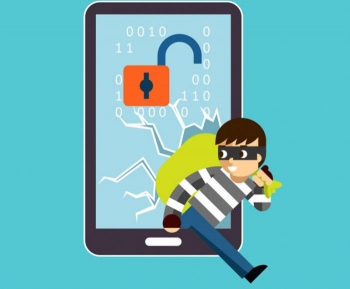
.png) Aarti
Aarti
.jpg)
Who would have imagined that the mobile phone’s capacity to make people sociable will reach such new heights? Yes, no one knows for sure when the ubiquitous mobile would ring. Be it when one is just starting to have breakfast or trying to wriggle out of traffic, while expecting an important business call or during an official meeting and sometimes even late in the evening.
Let’s for a moment rewind to 2010.
Newspapers had reported how a visibly angry Late Pranab Mukherjee reacted when a caller representing a finance company offered him a home loan when he was having intense discussions in Parliament with Opposition party leaders.
Commercial communication which is unsolicited – that is when a caller initiates communication to promote and sell her/his product without any commercial relationship – is on the rise. Such unsolicited calls are undoubtedly annoying but what can anyone do about it. No one knows who is calling and why? Additionally, such calls also interfere with privacy of the subscribers. Well, the person on the other side may probably be genuinely trying to sell something to earn her/his living or someone seeking help but it could also be a cyber-crook trying to have a conversation for pecuniary gain.
However due to the increase in the use of the internet, the number of cyber-crimes are also increasing. With the world’s second largest internet population at over 776.46 million users from a modest 2.3 lakh internet users in 1999, surely, India’s digital journey is unique. Presently, there are 33.99 rural and 101.74 urban internet subscribers respectively per 100 population.
According to the National Crime Records Bureau data, 21,796, 27,248 and 44,546 cyber-crime cases were registered during the years 2017, 2018 and 2019 respectively. The motives behind such cyber-crimes are said to range from personal revenge, fraud, stealing information etc. If a Truecaller study is to be believed, there has been a 15% increase in spam calls in India during 2019. On average, an Indian received 25.6 pesky calls a month in 2019, compared with 22.3 calls the previous year. The company claimed that during the period, it helped users identify 116 billion spam calls and 8.6 billion spam SMS globally. In 2019, one in three women in India received sexually inappropriate calls and SMS, according to the Truecaller data.
In the US, to deal with the growing menace of robocalls, which on an average is to the tune of a whopping 2 billion per month, the Federal Communications Commission has enforced strict rules that would allow phone companies to target and block robocalls coming from what appear to be illegitimate or unassigned phone numbers.
To put an end to unsolicited calls and text messages, the State Consumer Redressal Forum in Delhi had warned cellular operators to end the practice as early as 2006. It maintained that failure to comply with the order will invite fines of up to Rs 10,000 and imprisonment for between one month and three years under the Consumer Protection Act. The punishment would be handed to the CEOs, or chief executive officers, of goods and services providers found flouting the order. In another ruling, the same consumer court held that mobile users who are harassed by unsolicited calls and SMS from their service providers, banks or telemarketers will be entitled to a minimum compensation of Rs 25,000.
The Telecom Regulatory Authority of India (TRAI) which regulates telecom services and tariffs has been initiating a series of measures to end unsolicited calls. In February 2019, TRAI made it mandatory for telecom companies to ensure all the bulk calls and messages are routed through a Blockchain platform which authenticates the sender before sending the messages or facilitating calls by generating and storing a unique number for each transaction. This communication would include the messages that we get from the banks, from the government, retailers and all such entities that keep on sending messages and emails and making calls.
More recently the Delhi High Court while disposing of a plea of One97 Communications Ltd, which owns Paytm, that alleged telecom operators were not blocking "phishing" activities over various mobile networks has directed TRAI to strictly implement regulations of 2018 to curb unsolicited commercial communications (UCC).
Hold on, the whole digital ecosystem is set to change. So, will the menace of pesky calls as well as financial frauds perpetrated using telecom resources may be a thing of the past?
Yes, besides ensuring that financial digital transactions are more secure, a slew of other measures announced by the Union Minister for Electronics & Information Technology, Communications and Law & Justice, Mr Ravi Shankar Prasad this 15 February aimed at effectively addressing the menace of unsolicited commercial communication are well intentioned.
To handle digital challenges, the establishment of a nodal body - Digital Intelligence Unit - to coordinate with various agencies like telecom companies, financial institutions, law enforcement authorities etc., and a system at licence service area level Telecom Analytics for Fraud Management and Consumer Protection are to be in place soon.
At the individual level it pays to maintain digital hygiene. Be it from having strong and secure passwords, updated operating systems etc., one should desist from connecting to unknown Wi-Fi hotspots or download unknown applications. A simple click on to the links in unknown or suspicious emails can wipe out one’s hard earned money almost instantaneously.
It needs to be understood as it has been said that society prepares the crime; the criminal commits it, because of one’s bad digital habits, the hacker’s job becomes easier, isn’t it?
Complacency can cost dearly, beware.